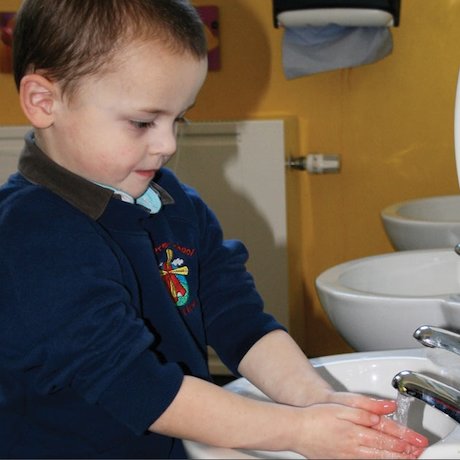Steps to self-care
- 5 Stars
Add to My Folder
Original article published 6 April 2010
Managing personal hygiene is a life skill which all children are expected to achieve by the time they leave the Foundation Stage. This has implications for the facilities you provide as well as the care and support you offer
<br/ >

If you have a large group of children or Reception class, supervising visits to the toilet could easily take up most of your day and become disruptive. The secret is to establish good habits from the start. Having procedures in place for children’s toileting routines is of paramount importance in maintaining good hygiene practice and establishing children’s confidence and independence.
Planning opportunities for children’s Physical Development involves making sure that they are developing an awareness of their own needs and encouraged to develop independence in handwashing and toileting. This includes learning and practising ways to manage their own basic hygiene. You can make this fun by singing action rhymes, such as ‘This is the way we wash our hands’ (to the tune of ‘Here we go round the mulberry bush’).
Most settings have policies relating to toilet regimes. Sometimes statements overlap as they are relevant to more than one policy or document, for example, the ‘Nappy changing and toileting policy’, ‘Health and hygiene policy’ and ‘Risk assessment check-lists’ may all have clear references to when, where and how cleaning routines are implemented.
<br/ >
“Having procedures in place for children’s toileting routines is of paramount importance in maintaining good hygiene practice and establishing children’s confidence and independence”
Already a member? Sign in below.
Published 3 October 2019
Reviews
Rated 5/5 from 1 rating
You need to be signed in to place a review.